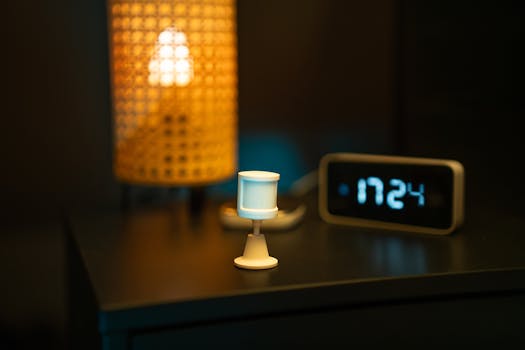
Unlocking Wellness: The Crucial Role of Sleep in Health
Takeaways: Sleep is essential for overall health and wellness. It supports physical health, mental clarity, emotional stability, and cognitive function. Prioritizing sleep hygiene can lead to improved quality of life.
Sleep is often an overlooked aspect of our daily lives, yet it plays a fundamental role in our overall health and wellness. In our fast-paced world, many individuals sacrifice sleep to meet work demands or personal obligations, unaware of the long-term consequences. This article delves into the significance of sleep, the effects of sleep deprivation, and practical strategies to enhance sleep quality.
The Importance of Sleep

Physical Health Benefits
One of the most significant benefits of sleep is its impact on physical health. Quality sleep helps to:
- Strengthen the Immune System: Adequate sleep boosts the immune response, helping to ward off illnesses.
- Maintain Healthy Weight: Sleep influences hormones that regulate appetite. Inadequate sleep can lead to increased hunger and cravings, contributing to weight gain.
- Support Heart Health: Studies show that poor sleep is linked to an increased risk of cardiovascular diseases, including hypertension and heart attack.
- Enhance Physical Performance: Athletes often report improved performance, faster reaction times, and better accuracy after a good night’s sleep.
Mental Health Benefits
Sleep is equally important for mental health. Quality sleep contributes to:
- Improved Mood: Lack of sleep can lead to irritability and increased stress levels. Conversely, a good night’s sleep can enhance mood and emotional resilience.
- Enhanced Cognitive Function: Sleep is crucial for memory consolidation and learning. Insufficient sleep negatively affects concentration, problem-solving skills, and decision-making.
- Reduced Risk of Mental Disorders: There is a strong link between sleep deprivation and mental health disorders such as anxiety and depression.
The Consequences of Sleep Deprivation

- Increased Risk of Chronic Diseases: Conditions such as diabetes, obesity, and heart disease are more prevalent in individuals who do not get enough sleep.
- Impaired Cognitive Function: Lack of sleep can lead to memory issues, difficulty concentrating, and slower reaction times, making everyday tasks more challenging.
- Emotional Instability: Sleep deprivation often results in heightened emotional reactivity, making individuals more prone to stress and anxiety.
- Decreased Productivity: Insufficient sleep affects work performance and productivity, leading to mistakes and accidents.
Strategies for Better Sleep Hygiene

- Establish a Sleep Schedule: Go to bed and wake up at the same time every day, even on weekends, to regulate your body’s internal clock.
- Create a Restful Environment: Make your bedroom conducive to sleep by minimizing noise and light and keeping the room cool.
- Avoid Stimulants: Reduce caffeine and nicotine intake, especially in the hours leading up to bedtime.
- Limit Screen Time: Avoid screens from phones, computers, and TVs at least an hour before bed to help your body prepare for sleep.
- Engage in Relaxation Techniques: Consider practices such as meditation, gentle yoga, or reading to unwind before sleep.
Conclusion







